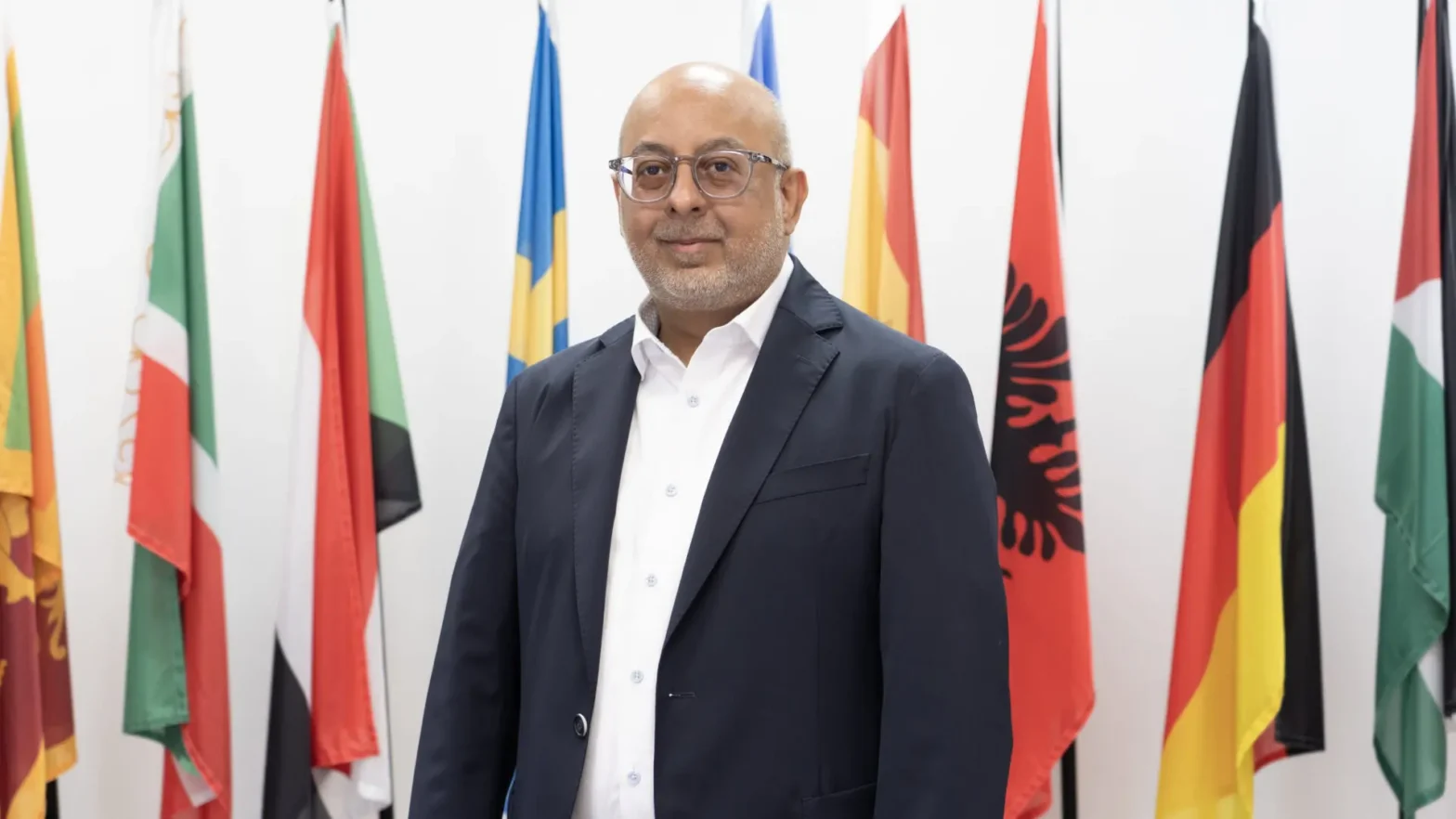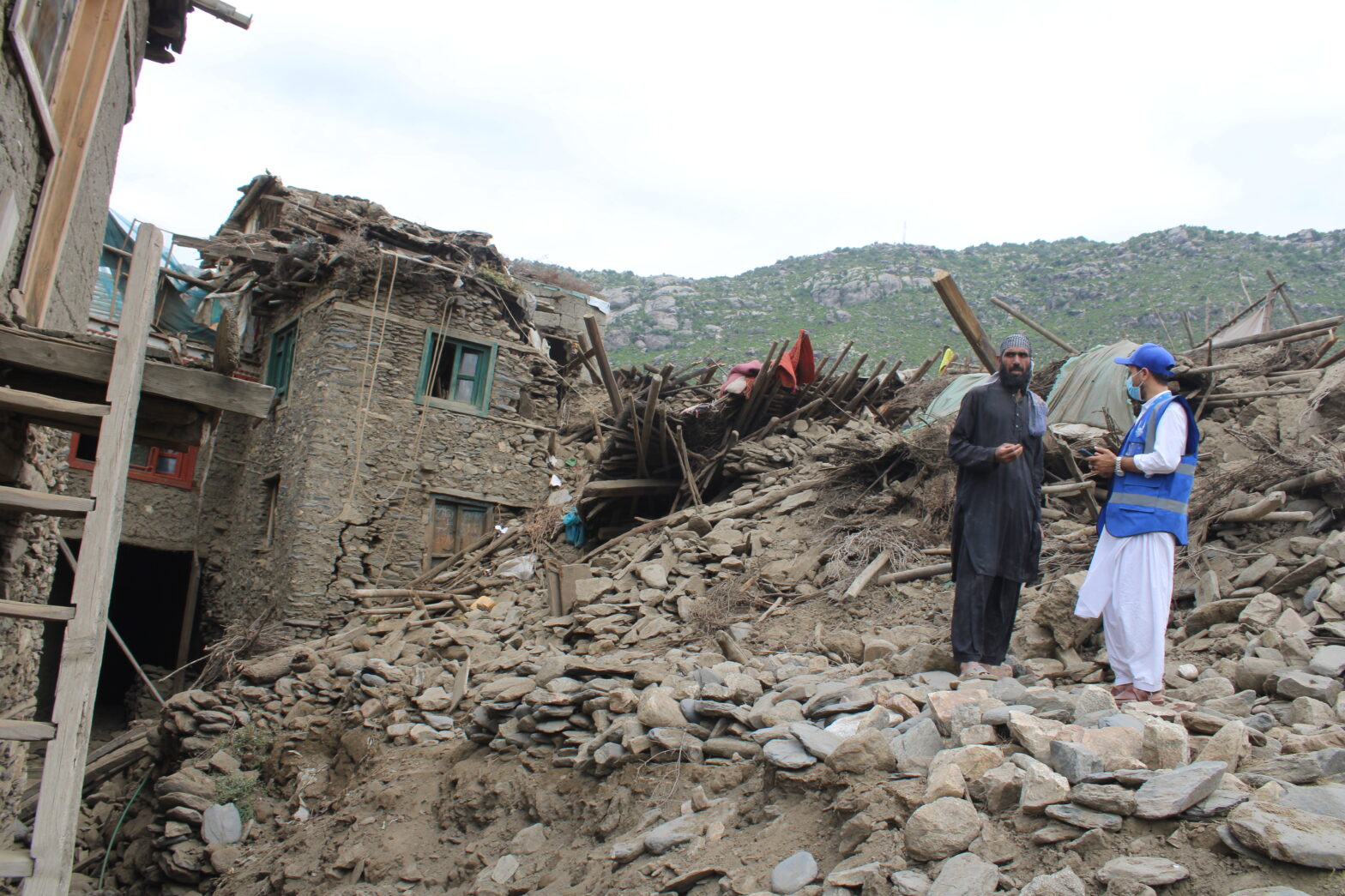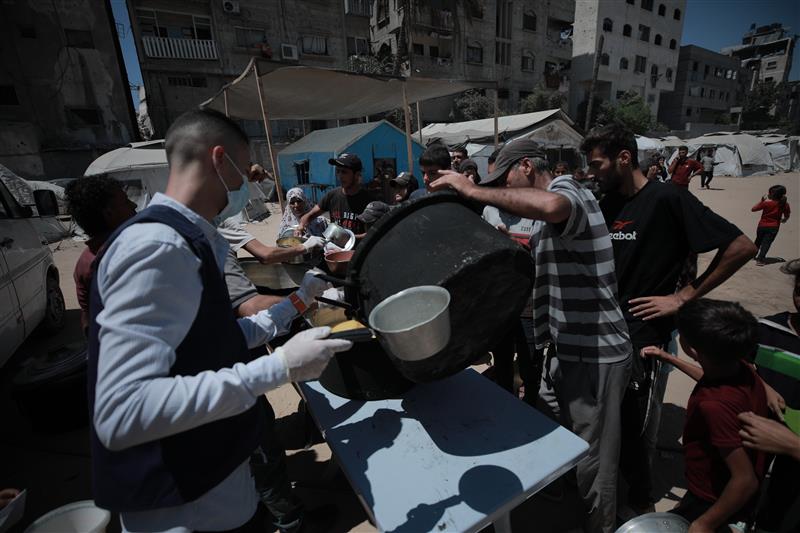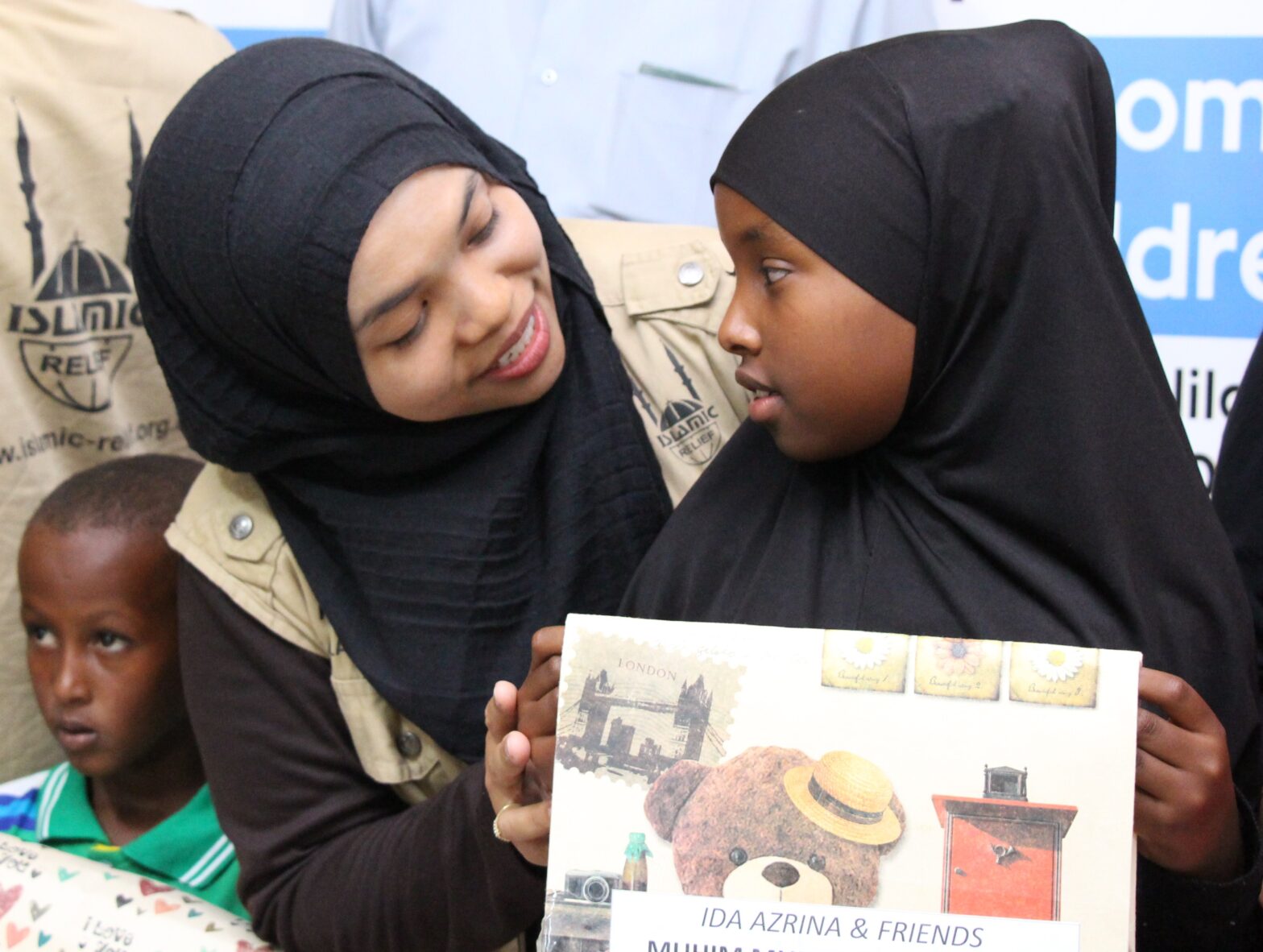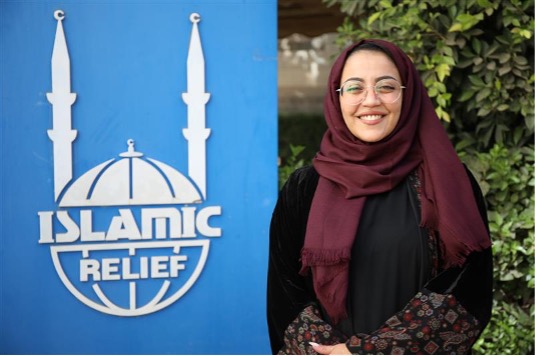Nada Abu Taleb has documented Yemen’s silent suffering as Islamic Relief’s Media and Communication Coordinator in the country. Now, she reveals what humanitarian work truly means in one of the world’s most neglected crises.
World Humanitarian Day is a moment to pause, reflect, and remember why we choose to stand together in the face of crises. After nearly 15 years of humanitarian work, I have learned that to #ActForHumanity is not simply a theme; it’s a daily commitment, deeply personal and urgent, especially here in Yemen.
As a Yemeni who has lived and worked through this crisis, I know that suffering is not a distant headline, it confronts us every day. I see it in the strained expressions of my neighbours, hear it in the despair of families struggling to survive. But amid these painful encounters are moments of profound dignity that stay etched in memory.
I recall a mother who had just received a modest cash assistance package. Her hands held her child tightly. They were visibly malnourished, yet her eyes expressed overwhelming gratitude rather than complaint. In that moment, aid became about more than just food or money; it became about dignity, about making people feel seen and valued.
Another defining moment was my encounter with a displaced father living in a makeshift shelter after losing nearly everything: his home, livelihood, and even family members. Despite his burden, his greatest concern was maintaining his children’s sense of normality. “Even when we have nothing,” he said quietly, “I still make sure my children feel safe, clean, and believe things will get better.” This humble, steadfast courage reshaped my understanding of dignity. Humanitarian work is not merely about distributing aid; it’s about honouring people’s resilience, acknowledging their identity, and protecting the fragile sense of hope they still hold.
Education: Yemen’s silent crisis
While the world rightly recognises and responds to immediate crises like hunger and the need for shelter, Yemen’s overlooked crisis is the systematic erosion of our education system. Schools are emptying, teachers haven’t been paid, and children’s dreams are fading. I remember a classroom without doors or windows, children huddled together sharing torn notebooks. When asked about his dreams, one boy replied earnestly, “I want to be a pilot, but I don’t know if I will ever fly a plane. We can barely eat.”
This stark realisation hit me deeply. Education is not a luxury, it’s the promise of a future. Without schooling, children lose more than knowledge; they lose structure, security, and the ability to envision a better tomorrow. Protecting education is protecting hope itself, yet this urgent truth rarely makes international headlines. That’s why Islamic Relief teams in Yemen are working to rebuild classrooms, train teachers, and create safe learning spaces in some of the hardest-hit communities.
Finding strength in small acts
Humanitarian workers frequently grapple with overwhelming despair. I recall one particularly difficult day, consumed by endless stories of families skipping meals, children leaving school, communities crushed by hardship. The scale of suffering was paralysing.
But what pulled me back was the quiet joy of Eid celebrations. Families smiling because their children had new clothes, or because, for the first time in months, they had meat on their table. I remembered a father weeping quietly with relief as he watched his daughters recover from malnutrition, their laughter a testament to a small triumph. These moments of humanity remind me why this work matters, small gestures can reverberate deeply, sustaining hope amid despair.
Innovating amid challenges
The complexity of Yemen’s crisis which is marked by checkpoints, instability, and dwindling funds, often hampers our physical presence in affected communities. Our office responds creatively, training colleagues in remote areas in photography and storytelling so the voices of the communities we support can be heard. This initiative ensures we can document, communicate, and respond swiftly, preserving transparency and maintaining critical connections even amid logistical nightmares. This adaptive resilience underscores the resourcefulness required to deliver impartial and dignified humanitarian assistance under seemingly impossible circumstances.
Women’s silent strength
Throughout this crisis, I have come to see my fellow Yemeni women quietly shoulder extraordinary burdens. Their courage often lies not in grand gestures, but in daily persistence despite exhaustion, fear, or loss. Witnessing their quiet determination consistently reshapes my understanding of what true bravery looks like.
But some of their strength also comes from Yemen’s extraordinary community solidarity. Where official systems fail, neighbours have stepped forward, sharing limited resources, organising responses, and ensuring no one is abandoned. This local strength profoundly shapes our humanitarian approach, reminding us that true assistance is collaborative, respectful, and humble. Our role is not to lead from above, but to support and amplify the resilience already thriving on the ground.
The world’s shared responsibility
Today, when global attention feels overstretched, and crises rage everywhere, from Gaza to Sudan, solidarity is not a limited resource, it’s our shared responsibility. Acting for humanity means refusing to normalise suffering, no matter how frequent it becomes. It requires compassion, dignity, and fairness, consistently and urgently, even when no one is watching.
Yemen is often misunderstood, painted simplistically as a land of endless conflict and helplessness. In reality, Yemenis are remarkably spirited and resourceful. Our task as humanitarian workers is not to save them, but to stand beside them, preserving dignity, amplifying their voices, and working towards sustainable recovery.
On World Humanitarian Day, let us remember that behind every statistic, there’s a person with a story to tell. That is my job as a communicator. To act for humanity is to remain present, compassionate, and brave, even in the face of immense challenges. This work is not just our choice, but our collective answer to a world that desperately needs humanitarians. May our actions always reflect that calling.
Families in Yemen are fighting for survival every day. With your support, Islamic Relief can deliver life-saving aid to those who need it most. Your donation can help provide food, medicine, and hope to vulnerable communities. Please donate to our International Emergency Appeal today.



